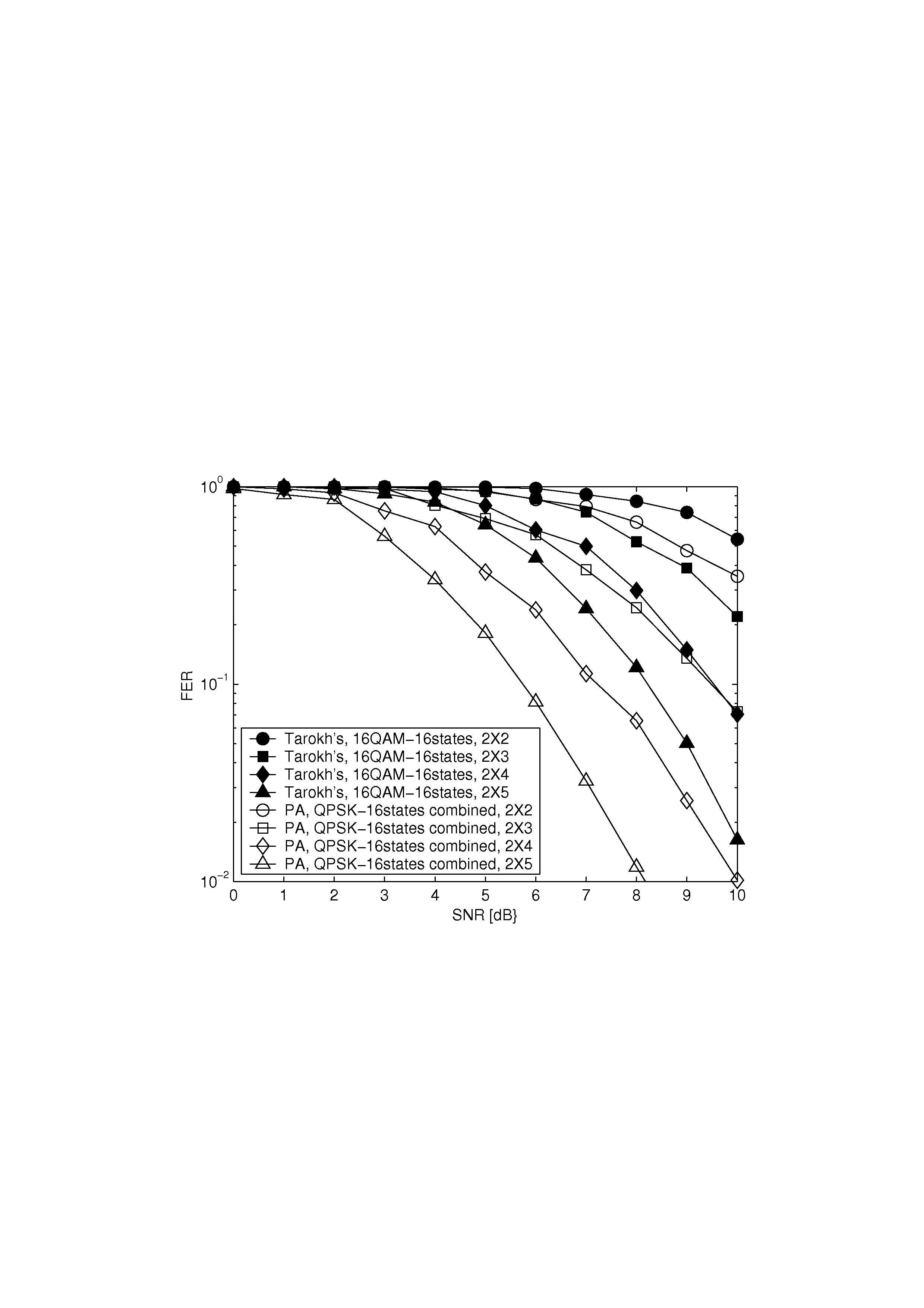 |
Simulation results are for
quasi-static Rayleigh fading channel and for block length of 260 bits.
We compare our proposed algorithm (PA) with space-time convolutional
code of
Tarokh with 16-QAM constellation size.
|
 |
Simulation results are for
quasi-static Rayleigh fading channel and for block length of 260 bits.
We compare our proposed algorithm (PA) with space-time convolutional
code of
Tarokh with 16-QAM constellation size.
|